Play as a rogue AI surviving off gig work and dice rolls in Citizen Sleeper
Live out a tough life in "the ruins of interplanetary capitalism."
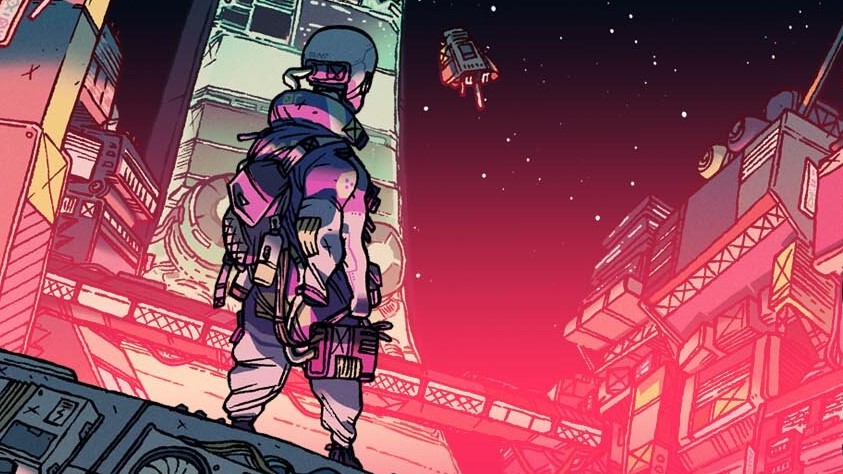
In Citizen Sleeper, you don’t remember much from before you sealed yourself in a shipping container to be shot into space. What you do know is that you’re an escaped digitised consciousness in an artificial body called a Sleeper, owned by a corporation that desperately wants you back.
So, you're in a pretty dire situation, but thankfully, your shipping container washed up on an abandoned space station named Erlin's Eye, a lawless interstellar society living on the brink of civilisation in the far reaches of the galaxy. Citizen Sleeper is all about beginning your new life as a runaway in this strange, sometimes hostile city.
You experience the world of the space station almost entirely through text, your AI character describing the sights, smells, and sounds of the bustling space station around you. The writing is incredibly vivid and Gareth Damian Martin's words leave such a striking impression. Martin's ability to create a detailed world from a few lines of text was something that I loved in their previous game In Other Waters.
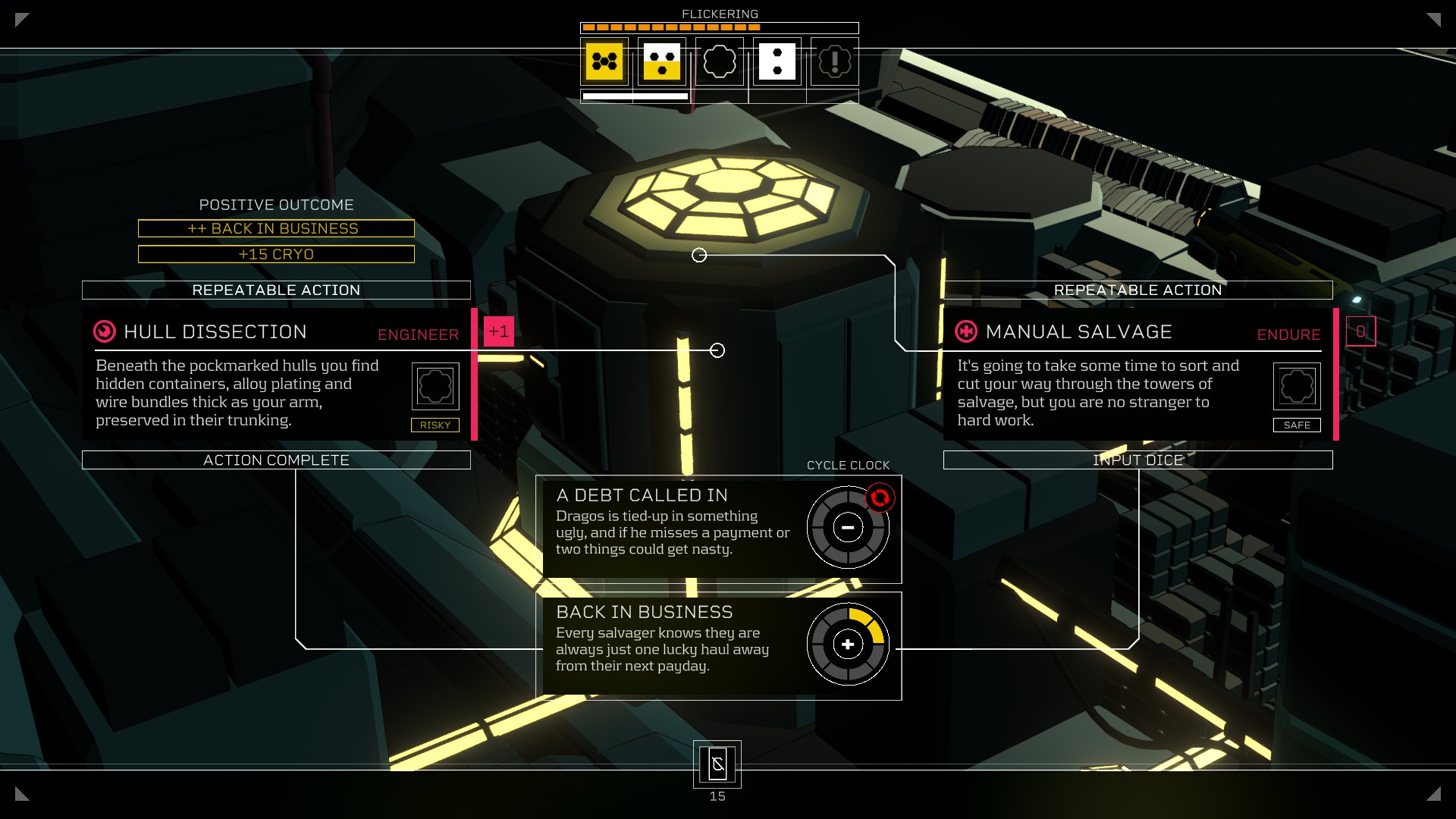
No one is obligated to help you but there's a strong sense of community. Everyone has a silent understanding for those whose lives lead them to this backwater spaceship.
Visually, you only see the exterior of the ship—a giant loop in constant motion—but the writing together with Guillaume Singelin's detailed character art of scrap salvagers, engineers, backstreet doctors, and street-food vendors gives your imagination everything it needs to piece together the unruly and chaotic world of the Eye.
But, even in the most desperate places, kindness still survives. The residents of the Eye are a compassionate bunch, considering everyone's circumstances. My Sleeper was starving after they woke up, with no money to buy food, but thankfully the tattooed, burly food vendor Emphis was kind enough to offer a free meal. A back-alley doctor named Sabine offers to help get the right stabilizers that are keeping the Sleeper's body alive, which are incredibly difficult to get since the corporation that owns you is the sole producer. No one is obligated to help you but there's a strong sense of community. Everyone has a silent understanding for those whose lives lead them to this backwater spaceship.
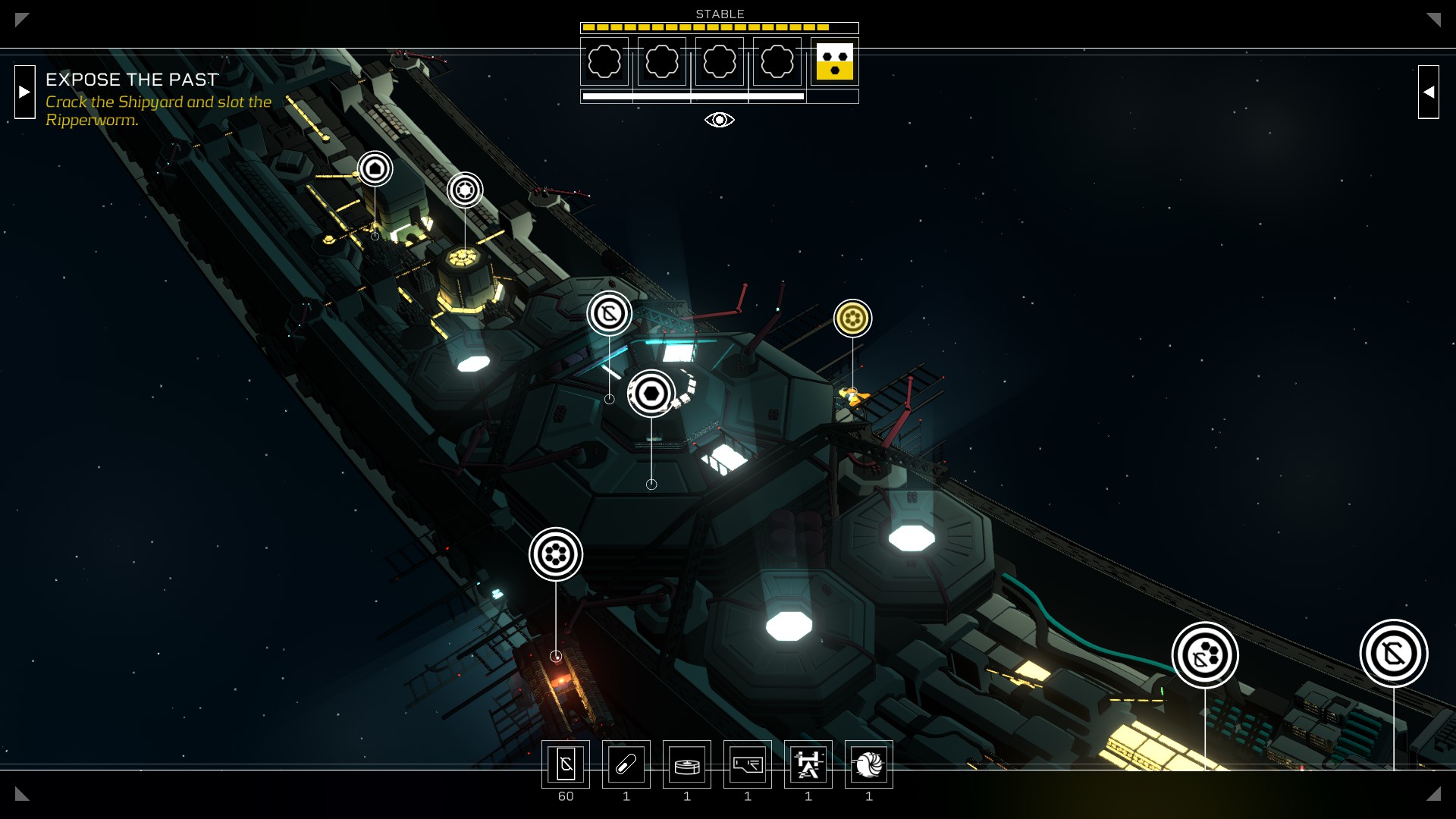
Charity can only get you so far though. In hopes of surviving each day, called a 'cycle', you'll need to pick up odd jobs for money like breaking down heaps of junk in the scrap yards, fixing up a mercenary's ship, or dabbling with resource trading. Citizen Sleeper is heavily inspired by TTRPGs, and the outcome of these jobs is determined by a dice system. At the beginning of each cycle, you roll a set of dice and then assign them to tasks and events that are available on the station. The higher the dice, the better the outcome of the activity.
It's something that's easily overlooked but one detail I love about the dice mechanic is that to assign one to an activity, you need to manually click and drag it into the event's square, satisfyingly slotting it in place, just as you would if you were assigning dice on an actual TTRPG board.
During my first day, I needed to make some money or risk starving and decided to take up a job manually sorting through metal salvage. I rolled a five at the start of the day and decided to assign it to the activity. The outcome was positive, meaning my Sleeper had done a great job and was paid for their labour. Even if you get handed a fist full of ones and twos, there's always something useful to use them on. Being an AI means you can hack into the ship's mainframe to find secrets, and these events are the safest way to spend your low dice free of risk.
The biggest gaming news, reviews and hardware deals
Keep up to date with the most important stories and the best deals, as picked by the PC Gamer team.
Each day triggers new story events and learning how to assign your dice wisely is at the core of Citizen Sleeper. At the start of the game, you pick between three different RPG-like classes, each one giving you bonuses for certain activities. I picked the 'machinist' class, meaning that I could add a bonus to my assigned dice that involved anything to do with machine and physical tools, so sorting through scrap metal became one of my daily jobs.
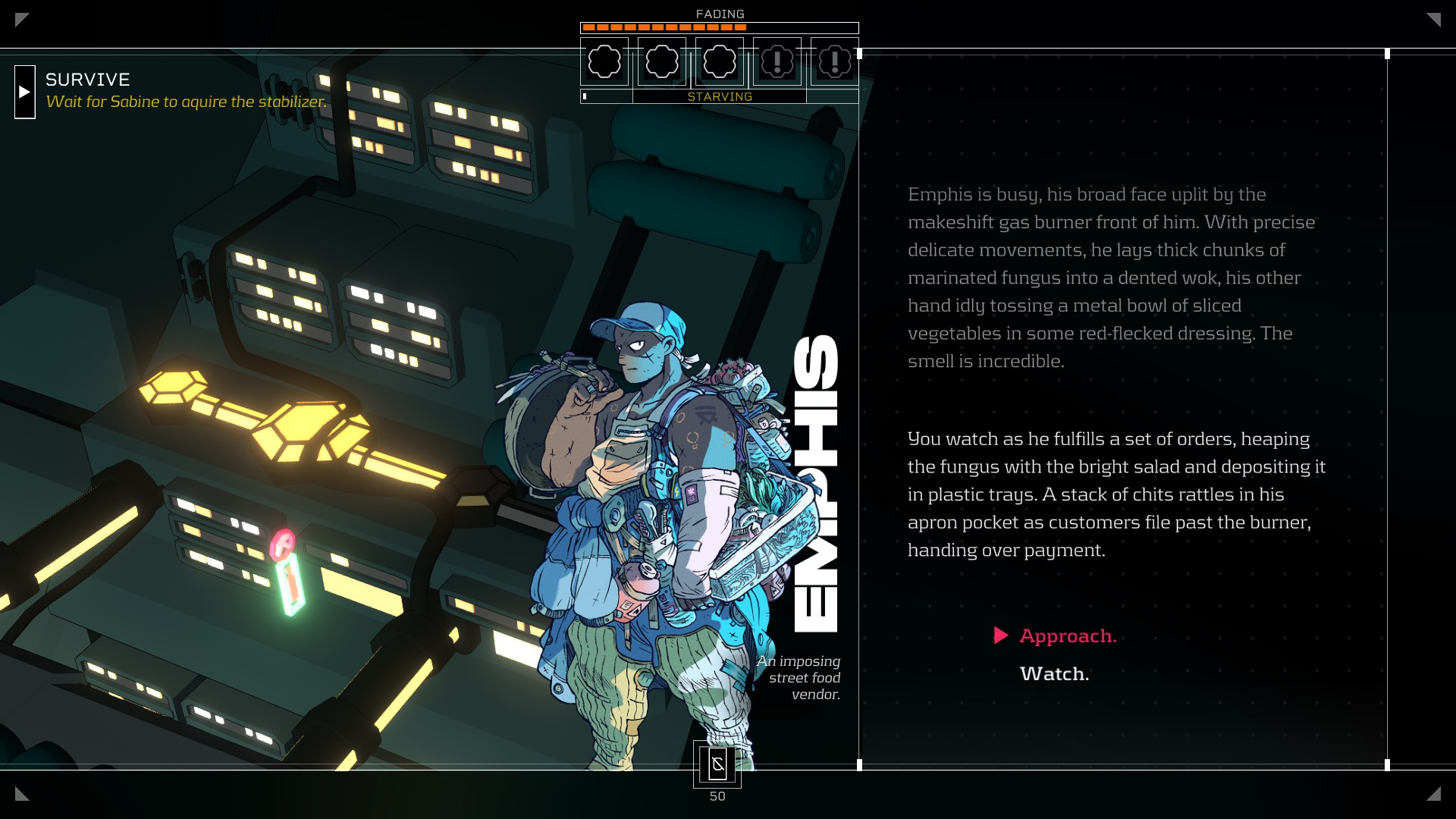
I say one of my jobs because you'll be picking up as much work as you can in Citizen Sleeper. Getting gig-work is a vital factor of your life as a Sleeper, and making ends meet is just part of survival. It's a topic that feels almost out of place in a fantasy sci-fi world, but in a game whose setting is "the ruins of interplanetary capitalism," it feels completely grounded. This also ties in with the idea that the decision to escape the corporation that owns you should mean certain death but, through community and gig-work, the Sleeper is finding a way to live their own life. For now anyway.
There's more to life on the Eye than work, though. Part of your time on the ship is learning its secrets and how you ended up here in the first place, but getting answers means taking on riskier challenges. Events repeat themselves each day but if you fail multiple times, something incredibly bad could happen. One event asked me to steal a set of dock plans, which risked putting me on the ship's security watch list. Not great for someone who's supposed to be hiding from an all-powerful megacorp.
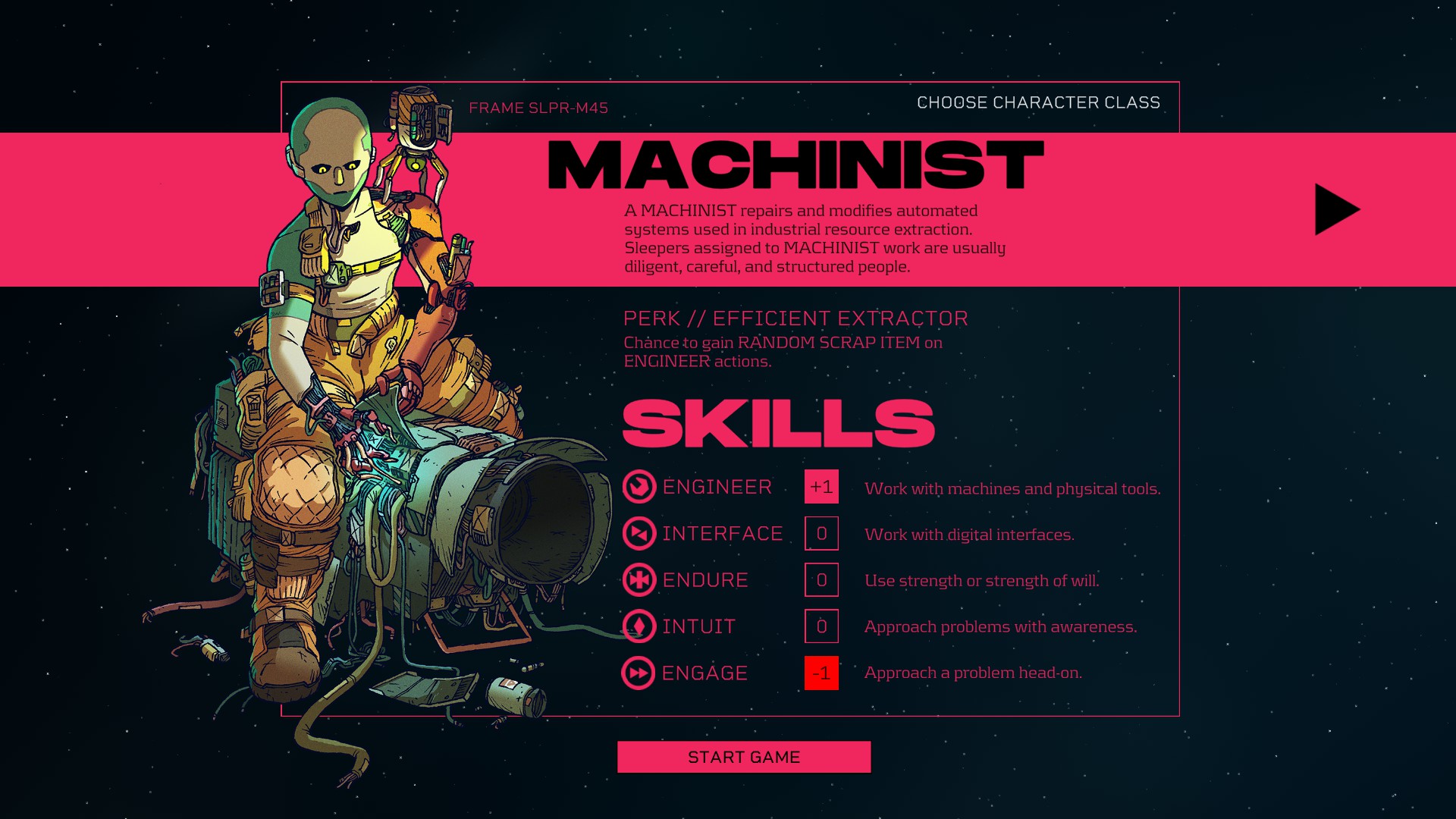
So far, I'm completely bewitched with Citizen Sleeper's sci-fi world and I've only just scratched the surface. I would almost call it cyberpunk but it's far from the glossy, neon-soaked, Japanese-infused worlds that the genre had adopted in recent years. Citizen Sleeper's story is instead better described as a gritty, scrappy sci-fi built on the importance of community and the difficult lives of people trying to live on the fringes of an intergalactic capitalist society.
There are also so many mysteries to solve. I need to know why the Sleeper is risking their life by running away and why the evil megacorp is hunting them down. Unfortunately, answers will have to wait, as the game's current release date will be sometime in 2022.
Rachel had been bouncing around different gaming websites as a freelancer and staff writer for three years before settling at PC Gamer back in 2019. She mainly writes reviews, previews, and features, but on rare occasions will switch it up with news and guides. When she's not taking hundreds of screenshots of the latest indie darling, you can find her nurturing her parsnip empire in Stardew Valley and planning an axolotl uprising in Minecraft. She loves 'stop and smell the roses' games—her proudest gaming moment being the one time she kept her virtual potted plants alive for over a year.


